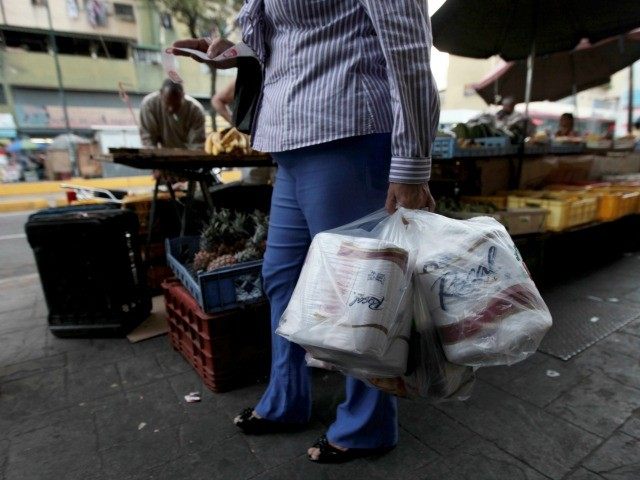The shortages in Venezuela have become so severe that even long-time Chavistas–supporters of the socialist government of the now deceased Hugo Chavez–are reaching a breaking point.
The New York Times reports the constant struggle to find food and other basic necessities–like diapers and toilet paper–is pushing some people to lose faith in the system they have long believed in:
“I’ve always been a Chavista,” said Ms. Noriega, using a term for a loyal Chávez supporter. But “the other day, I found a Chávez T-shirt I’d kept, and I threw it on the ground and stamped on it, and then I used it to clean the floor. I was so angry. I don’t know if this is his fault or not, but he died and left us here, and things have been going from bad to worse.”
The answer to the question of who is to blame is only slightly more complicated. Hugo Chavez has been dead since 2013, but his successor, Nicholas Maduro, has kept Venezuela on the same track, increasing his personal power over every aspect of the country’s economy. Maduro has instituted price controls, threatened capitalists with prison, and refused to acknowledge that the value of the nation’s currency is significantly less on the black market than the country’s official rate. All of this means that Venezuela has been plagued with high inflation and chronic shortages of basic goods.
The situation took a turn for the worse recently when global oil prices dropped to less than half their former value. Since oil sales account for 96% of the foreign currency that comes into the country, the Venezuelan economy had nothing to fall back on. The money to buy nearly everything Venezuelans need simply stopped coming in.
The situation has become so dire that Venezuelans are now lining up by the hundreds, often waiting for hours for a chance to buy whatever the grocery store happens to get that day. The NY Times reports that people are not starving, yet, but many have been forced to reduce the amount of meat they eat. Those who used to eat chicken are now eating canned sardines.
On social media, some Venezuelans were using the hashtag #AnaquelesVaciosEnVenezuela, which translates empty shelves in Venezuela. Empty shelves inside and long lines outside have become the norm as these photos collected on Twitter demonstrate.
President Maduro spent two weeks this month traveling around the world to OPEC nations, asking them for loans to help the government stay afloat until oil prices recover. That trip doesn’t appear to have been a success. Maduro is also going to raise the price of gas, currently the lowest in the world. What he has not done, yet, is devalue the currency to something closer to its actual black market value. Meanwhile, analysts have predicted that unless he takes that step, inflation will continue to soar (possibly into triple-digits) this year.

COMMENTS
Please let us know if you're having issues with commenting.